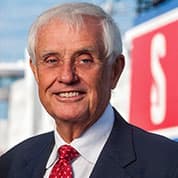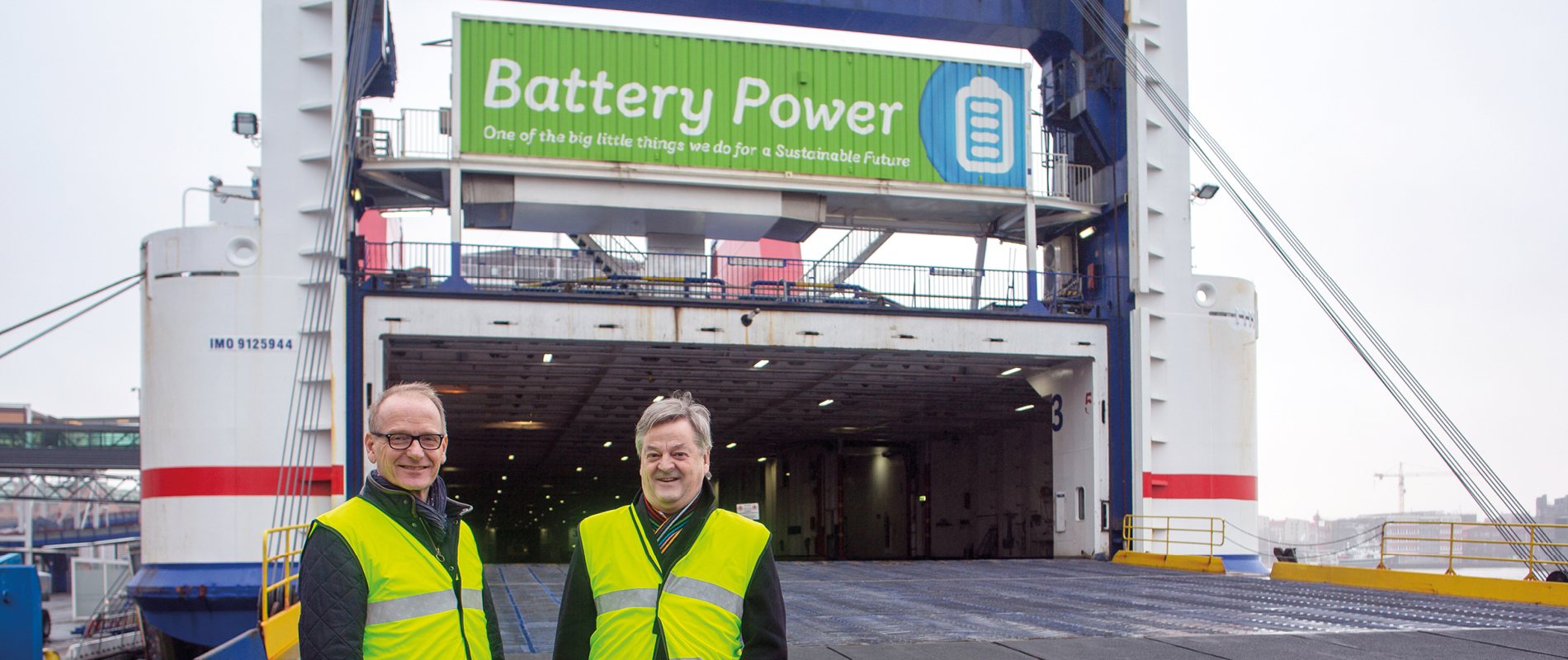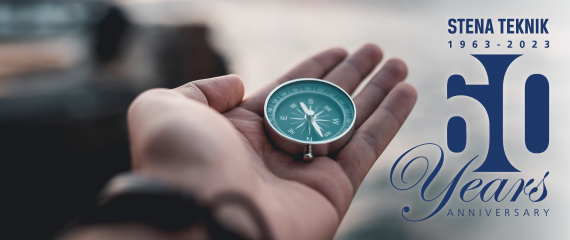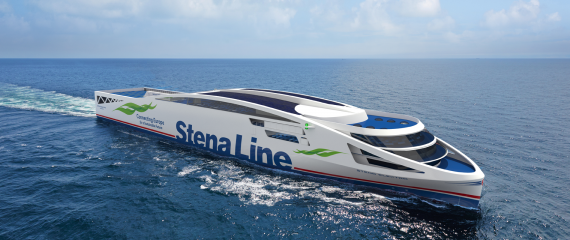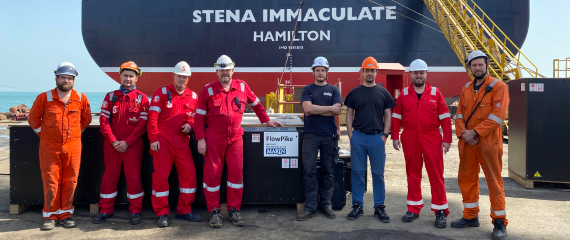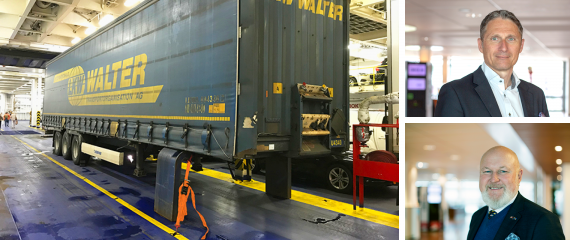PER AND PER ON FUTURE FUELS
Sulphur Emission Control Area (SECA) for the Baltic Sea, North Sea and English Channel have allowed emissions of 0.1% sulphur since 2015, which will be decreased to 0.5% by 2020. Last year the IMO decided that the shipping sector needs to halve greenhouse gas emissions by 2050. How do we accomplish this? To get a better grasp on what Stena is working on, we met Per Wimby and Per Stefenson at Stena Teknik.
“We will accomplish the goals for 2030 with today’s technology, and Stena Teknik has always worked to streamline our ships to reduce fuel consumption. This involves, for example, the hull design, propulsion, grates for bow thrusters, but also concerns how the ship is operated. A ship has a life of about 50 years, which means we must be flexible and able to rebuild in order to adapt to new future fuels”, says Per Wimby.
One example is the Stena E-flexer, which is a traditional diesel vessel, but with 20% less horsepower installed. The Stena E-flexer is scheduled to enter service in 2020 and the idea is to be able to adapt the ship when new technology is in place. Another solution is to install scrubbers. Instead of running on the cleaner fuel, which is more expensive than heavy oil and still produces emissions, the emissions can be purified to below 0.1%
sulphur. So far, seven ferries have been equipped with scrubbers and 15 tankers have ordered scrubbers to be installed by 2020.
But to meet carbon reduction targets for 2050 we will need to look at new and more efficient solutions. The Stena Jutlandica has recently been fitted with a battery container to test how the battery works under real conditions, and battery power is something you work a lot with.
“To service short routes (Gothenburg-Frederikshavn), around twenty-five 40-foot containers are required and many wonder how these will fit. But if you remove the diesel engines, there are no obstacles. Optimally, of course, entirely new ships are specially designed for battery operation like the Stena Elektra. (See the film: Stena Teknik Electro-
mobility at vimeo.com.) The batteries are charged at the port with fossil-free fuel and have a life of five years according to the manufacturer. In practice, this means about 8-10 years”, says Per Wimby.
NEW FUELS
“Solar cells are gaining ground, but currently solar cells can only contribute approximately 5% of the energy needed. So not enough to run a ship with. However, I believe that sun and electricity will be processed on land which then produce environmentally friendly fuels that can be taken on board. So you can bring solar energy on board and compete with oil. This also concerns fuel cells and using wind to sail again, with the help of so-called Flettner rotors. Värmland’s Methanol is building a factory where forest products (branches and tree tops) are turned into biofuel (methanol), Rotterdam gasifies waste into methanol and Canada is working to produce ethanol from garbage. Right now, there is a lot of talk about hydrogen (hydrogenation) because hydrogen does not contain carbon. CO2 emissions would be eliminated”, says Per Stefenson. “But my vision is that in the future we can run on methanol fuel cells”, he concludes.
NAME: PER WIMBY
YEARS WITH STENA: 25
INTERESTS: Golf and activities on water
BACKGROUND: Shipbuilder from the beginning and has, among other positions, served as Operations Manager at Stena Line Scandinavia where he initiated the Energy Saving Programme with fuel savings of 2.5% per year as a result. Member of the Stena Efficiency Group, where the idea is that all companies involved with shipping should share knowledge and experiences. Per initiated the first electricity project on the Scandlines route between Helsingborg and Helsingör and has designed battery power on the Stena Jutlandica. His most recent project revolves around the Stena E-flexer.
NAME: PER STEFENSON
YEARS WITH STENA: 9
INTERESTS: Sailing, hiking and carpentry at his cottage in the countryside.
BACKGROUND: Has a background as a shipbuilder and has worked in the EU research programme for shipping. The last 9 years Per has been employed as a Marine Standards Advisor at Stena Rederi where he regularly follows the legislative and technical development of alternative fuels. He has worked with the Stena Germanica’s methanol power, and the installation of scrubbers on the Stena Hollandica and the Stena Britannica.
| TODAY'S SOLUTIONS | Streamlining ships and optimising operations |
| LNG (a demanding alternative where gas must be cooled to -160 degrees Celsius to be able to refuelled) | |
| Methanol (still an expensive alternative) | |
| Biofuels (today's biofuel costs twice as much as diesel oil) | |
| Battery power for thrusters and backup of electricity used on board | |
| Emission purification with the help of scrubbers | |
| FUTURE POSSIBLE SOLUTIONS | Battery power |
| Fuel cells | |
| Photovoltaics (there is talk of new panels that are "painted" on) | |
| Biomethanol (obtained from forest waste) | |
| Electromagnetic fuels from renewable electricity (such as methanol and ethanol) |

